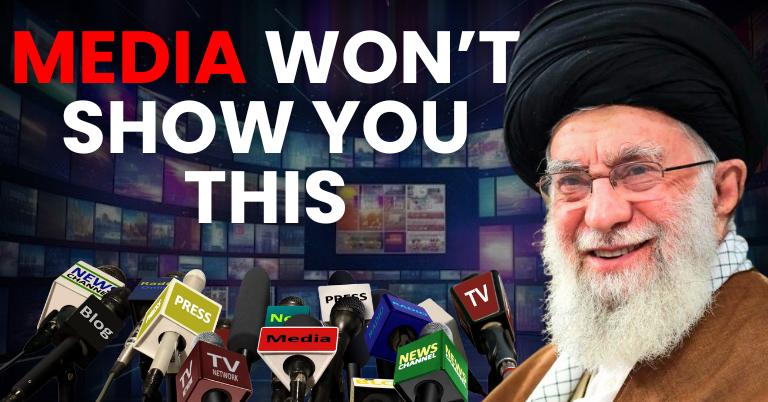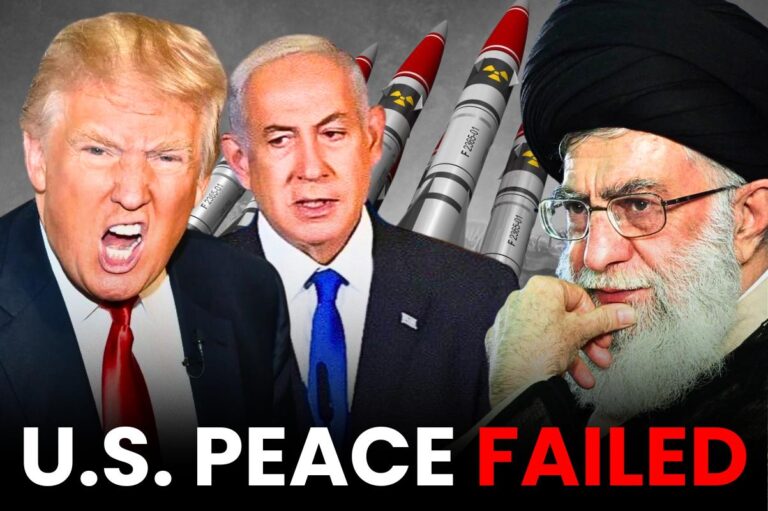What Media Isn’t Telling You About Iran, Israel, and U.S.
Tensions between Iran, Israel, and the U.S. dominate global headlines, but a growing body of voices argue that mainstream media isn’t telling the full story. According to the video, what’s unfolding may align with biblical prophecy, suggesting a divine trajectory beyond geopolitical strategies. This article explores what the media isn’t telling you about Iran, Israel and the U.S.. This Triangle of tension, why it matters, and how spiritual perspectives influence public opinion and foreign policy.
Iran’s Rhetoric Through a Spiritual Lens
While major news outlets report Iran’s repeated threats to “eliminate Israel,” the video interprets these statements through a religious and prophetic framework. Rather than viewing these declarations purely as political posturing, it connects them to end-time scenarios described in the Bible. This interpretation positions Iran not just as a geopolitical player, but as a prophesied antagonist in a divine narrative.
Why Mainstream Media Doesn’t Emphasize the Prophetic Angle
There are several reasons why this narrative remains underreported-
- Secular Bias: Most Western media operates within a secular worldview, often viewing religious prophecy as irrelevant to modern international relations.
- Focus on Strategy: News coverage tends to prioritize military developments, diplomatic negotiations, and nuclear non-proliferation efforts over spiritual interpretations.
- Audience Expectations: Prophecy is often categorized as “fringe,” making it less appealing to general audiences seeking political or economic analysis.
As a result, many viewers miss out on a dimension that deeply influences religious communities, particularly among American evangelicals.
U.S. Foreign Policy and the Role of Prophecy
The integration of prophecy into political discourse has significant implications for the United States:
1. Moral Responsibility
Some believe that if biblical prophecy is interpreted as predicting a significant conflict involving Israel, the United States has a moral obligation to support Israel militarily and diplomatically.
2. Public Perception
Millions of Americans, particularly those from faith-based communities, perceive global conflicts through a spiritual lens, which can influence their support for American involvement in Middle East affairs.
3. Policy Influence
Groups like Christians United for Israel (CUFI) employ both strategic and prophetic arguments to lobby U.S. policymakers. These actions have tangible effects on foreign aid, military alliances, and public diplomacy.
How Religion and Media Shape Diplomacy
Although spiritual interpretations may not guide official policy, they significantly influence:
- Lobbying Groups: Faith-based organizations actively promote pro-Israel policies, often citing biblical rationale.
- Voter Behavior: Religious voters can impact elections and shape Congressional decisions related to Middle Eastern conflict.
- NGO Activity: Faith-aligned think tanks and nonprofits blend theological insights with geopolitical analysis to inform advocacy efforts.
- Polls reveal that American Christians are significantly more inclined to support Israeli military action when it is presented within the context of biblical prophecy. Consequently, prophecy-based perspectives transcend theological boundaries and exert considerable political influence.
Limitations of the Prophetic Perspective
While the the prophetic perspective provides a compelling faith-based view, it does not cover several critical aspects:
- Military Capabilities: There is little analysis of Iran’s missile programs, defense systems, or Israel’s intelligence operations.
- Regional Alliances: The complex relationships between Iran, Syria, Hezbollah, Russia, and China are largely absent.
- Political Context: The internal politics of Iran and Israel along with international diplomatic efforts are not explored in depth.
This underscores the need to balance spiritual perspectives with factual geopolitical understanding.
Iran’s Message to Israel Just Triggered a U.S. Dilemma
Conclusion
The Iran-Israel-U.S. conflict is multifaceted, with mainstream media often focusing on its strategic and diplomatic aspects. However, certain faith-based interpretations resonate deeply with a significant portion of the population. Understanding this perspective not only sheds light on public sentiment but also reveals how religious narratives shape U.S. foreign policy. Regardless of whether perceived as a metaphor or a commandment, biblical prophecy continues to influence global perspectives in ways that mere headlines cannot fully capture.






